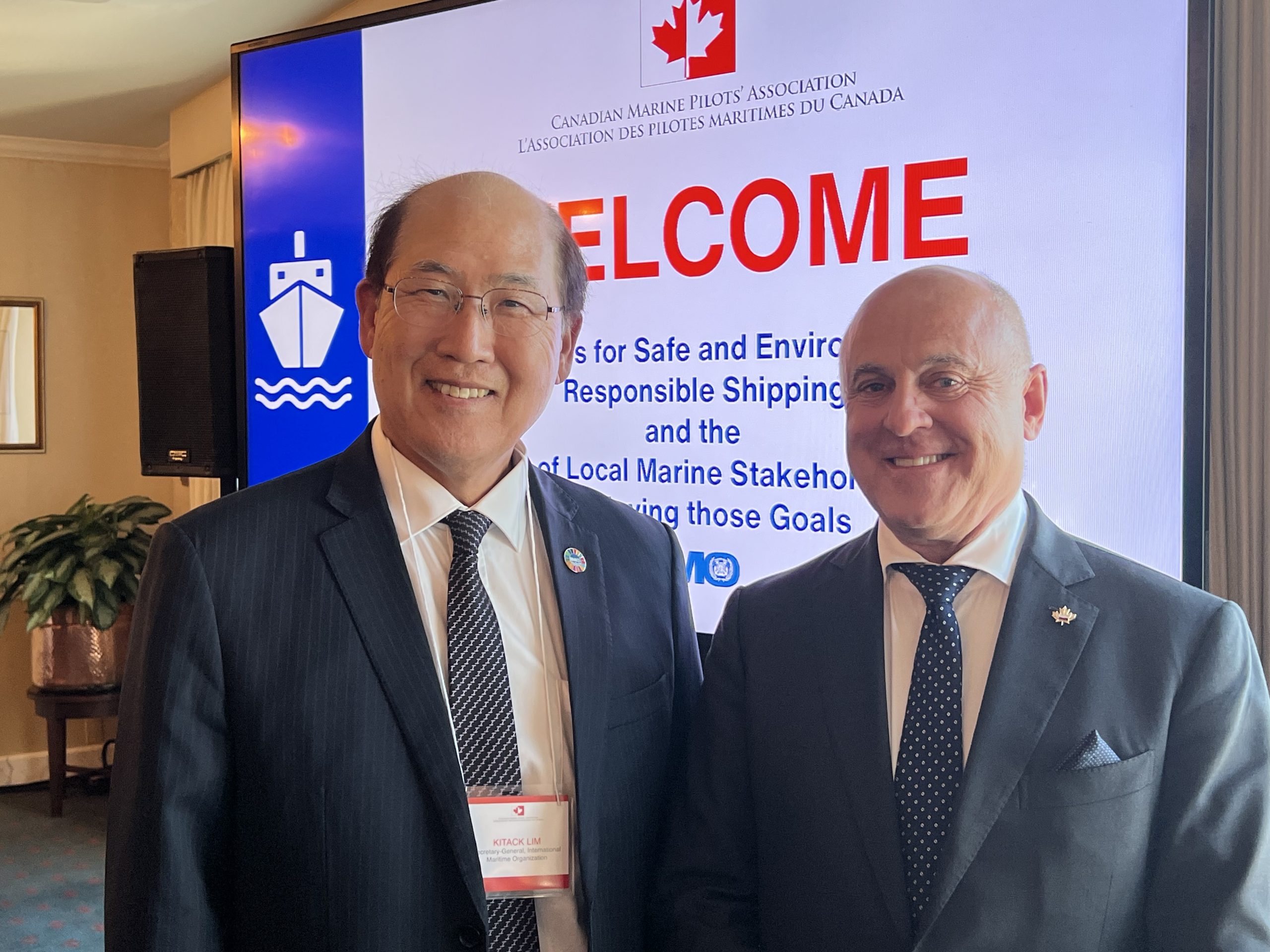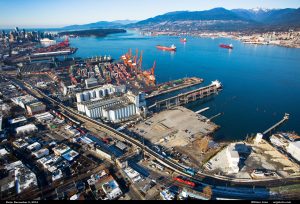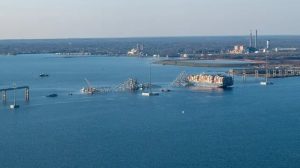By Leo Ryan, Editor
OTTAWA – Marine pilots and maritime industry representatives from across Canada were treated earlier this month to an informative, lively special colloquium on the goals of the International Maritime Organization (IMO) and the crucial role played by local pilots in achieving those goals. Hosted by Captain Simon Pelletier, President of the International Marine Pilots’ Association and of the Canadian Marine Pilots’ Association, the event on October 3 was highlighted by the participation of Kitack Lim, the IMO’s Secretary General.
In his introductory remarks, Capt. Pelletier, still an active pilot in the Lower St. Lawrence District, began by saying that, fundamentally, marine stakeholders “are preoccupied by a number of questions that can only be addressed through global collective action.”
For example: “If sea levels rise by 40 centimeters by 2050, shipping – and pilotage – will be deeply impacted. If we complete our move away from fossil fuels and embrace new energy sources, like hydrogen, new terminals – perhaps even new ports – will need to be built, bringing with them new navigational challenges.
“If the move towards sustainable shipping continues, the number of ever-bigger vessels – which are more fuel and emissions efficient – will continue to grow in our waters.
“And, if there is a greater trend towards de-globalisation and the emergence of regional blocks instead, not only will this impact shipping routes and cargoes, but the challenges that stand in the way of international collective action will also be greater.
“In all cases, maritime transportation as a whole and, with it, pilotage, will be directly affected by how these matters are addressed, or not.”
Capt. Pelletier continued: “Fortunately, IMO’s leadership has been strong and while global action is never easy, IMO has managed to build consensus and move forward important initiatives that provide a blueprint for internationalism. This is in no small part due to the personal qualities and approaches of Secretary-General Kitack Lim.”
Kitack Lim’s perspectives
Offering his views on the many challenges ahead, Mr.Lim first of all observed: “In a world where global economy relies on shipping, we must acknowledge the critical role of maritime personnel, particularly pilots.
“Pilots have always ensured the safety of navigation in challenging waters, guiding vessels through hazardous areas, and facilitating effective communication.
“The safety of navigation and environmental protection are collective responsibilities. As a specialized agency of the United Nations, IMO is the global standard setting authority for the safety, security and environmental performance of international shipping.”
Mr. Lim then stressed: “Only through extensive collaboration with all maritime stakeholders, we collectively drive the industry’s development and innovation, with the aim of achieving sustainable growth in the international maritime sector. It is in this spirit that I extend my heartfelt gratitude to IMPA for their pivotal contributions to IMO’s work over the past five decades, as a non-governmental organization with consultative status since 1973, now marking an impressive 50 years of collaboration.
“Few areas of shipping are as reliant on the human element as pilotage, and I am pleased to say that IMO has identified areas where IMO resolutions encourage the use of pilots on board ships and recently adopted a new strategic direction to recognize the importance of the human element lending further significance to the people involved in the shipping industry. IMO has therefore developed recommendations on training qualifications and operational procedures for pilots as well as requirements to make it easier for them to board ships.
“As we look into the future of shipping, we must ensure that our regulatory framework evolves in tandem with technological advancements. This includes addressing digitalization, automation, e-navigation, and cybersecurity.”
Combating climate change
Another paramount policy concern, Mr. Lim said, was “our unwavering commitment to combat climate change. IMO’s leadership in shipping decarbonization is paramount. Over the past decade, we have made substantial progress in reducing greenhouse gas emissions from international shipping.
“A momentous achievement in this journey is the recent adoption of the 2023 Strategy on the Reduction of Greenhouse Gas Emissions from Ships in July. This Strategy sets an ambitious goal of achieving net-zero greenhouse gas emissions by or around, i.e., close to 2050, marking a pivotal moment in maritime decarbonization.
“However, this is merely the beginning. To realize the net-zero goal, we must implement comprehensive measures as per the agreed schedule.”
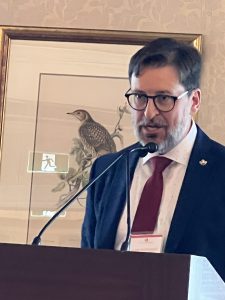
Capt. Arseneault on piloting into the future
For his part, Capt. Alain Arseneault, Executive Director of the National Centre of Expertise on Marine Pilotage in Quebec City, and also Vice President of the CMPA for the St. Lawrence region, covered a wide range of subjects in his presentation entitled Piloting into the Future.
Very involved in this future, he said, were the about 450 licensed pilots in Canada who board ships to help safely and efficiently transport goods through Canadian waterways as a key component in the supply chain. In the context of IMO’s objective of reducing Co2 emissions in shipping, it was essential today, more than ever, to bring goods as close as possible to markets. Shipping is the most energy-efficient mode to transport cargo.
Echoing earlier remarks by Mr. Lim, Capt. Arseneault recalled how Canadian pilots have been actively involved in the development of new technologies and the establishment of new standards and regulations to these new technologies.
In his regard, he pointed to the fact that 2024 will mark the 50th anniversary of the IMO’s SOLAS convention and singled out Chapter 5 dealing with the safety of navigation.
Through the Oceans Protection Plan, he said, Canada as a maritime nation seeks to be in the forefront of new technologies so can navigation can be “more respectful of marine ecosystems.”
The National Centre and its pilot-partners offer appreciated technical support to various organizations working on different projects connected to the Oceans Protection Plan.
Capt. Arseneault opined that it’s no coincidence that IMPA has been headed by two Canadian pilots for 40% of its existence.
“Canadian pilots,” he declared, “are recognized internationally for many reasons. Mainly, the Canadian pilotage system has been working very well since its creation as we know it since 1972. Just looking at the success rate of pilotage assignments, the numbers talk for themselves.”
Helping to gain social license
After outlining examples of Canadian pilots being solicited in many international and domestic forums, Capt. Arseneault emphasized the role that pilotage can play in gaining social license for major projects.
“Pilots have historically helped to gain public trust in navigation safety,” he said. “For example, the Valero-Desgagnés crude oil shuttle service on the St. Lawrence River between Quebec City and Montreal has greatly benefited from the presence of Mid-St. Lawrence pilots during the consultation period that led to the project. One could also argue that British Columbia Coast Pilots are instrumental in maintaining social license through the Second Narrows in Vancouver.”
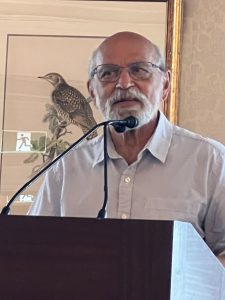
Grim words on escalating global issues
Closing out the colloquium was Dr. Alex Himelfarb, Director Emeritus, School of Public and International Policy at York University, who did not mince words in his assessment of the many societal, geopolitical and economic issues facing what he called “a world upside down today.”
To define the overall outlook, Dr. Himelfarb used a term coined by renowned French philosopher and sociologist Edgar Morin – Polycrisis. The latter refers to a great many related crises occurring simultaneously. Their compounding impact is not only profound, they can be seen as overwhelming and insoluble.
He asked such questions as how are we to manage globalization wisely in order for it to survive? How to build a consensus when competing interests and lack of trust discourage that co-operation? Idem for addressing environmental protection and climate change.
“There is generalized anxiety and worrying day-to-day about which crisis to focus on,” Dr.Himelfarb added: “What have we built and what are we leaving our kids? One must stop demonizing people who don’t agree with you.”
In a more optimistic vein, he concluded that Canada has in the past shown it can be trusted to broker deals. And in certain circumstances, “Canadian pilots can play a disproportionate role in building bridges.”
(Photos by Sophie Belina Brzozowska of Kitack Lim and Capt. Simon Pelletier (left to right in lead photo) of Capt. Alain Arseneault, and Dr. Himelfarb)


